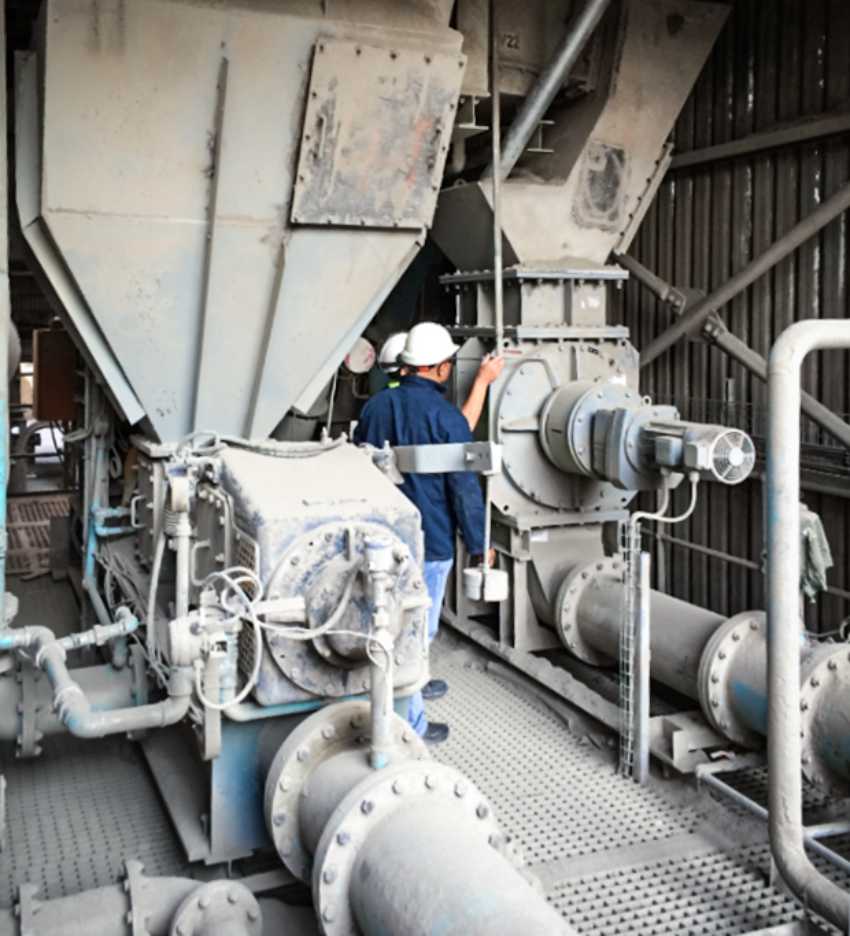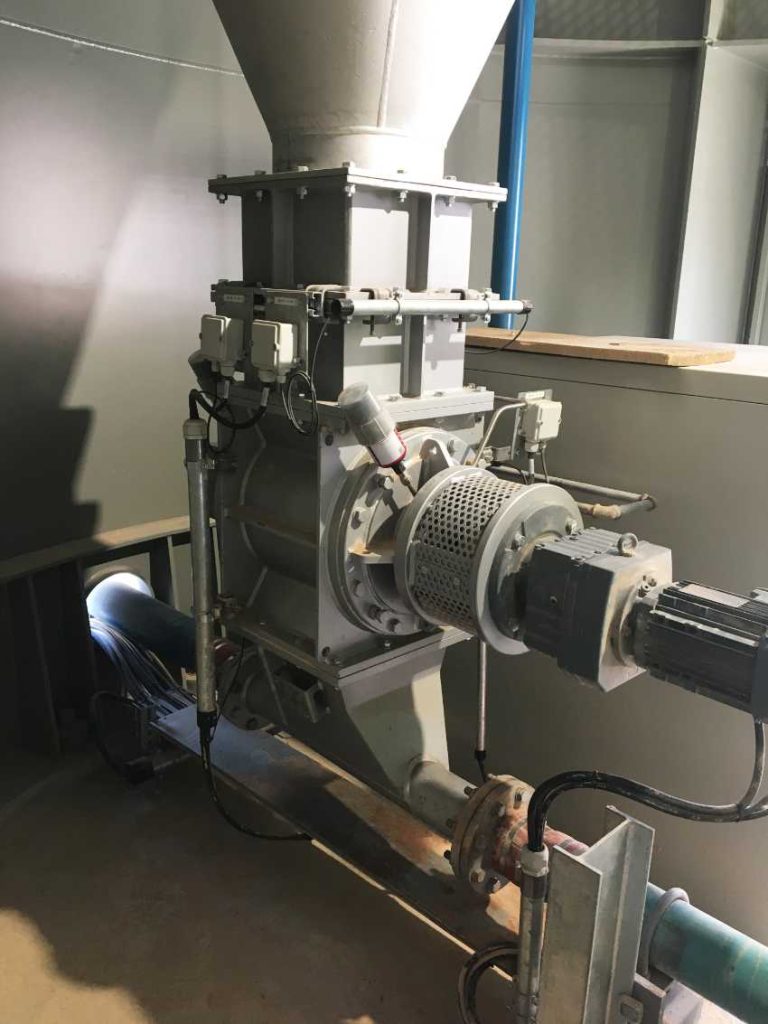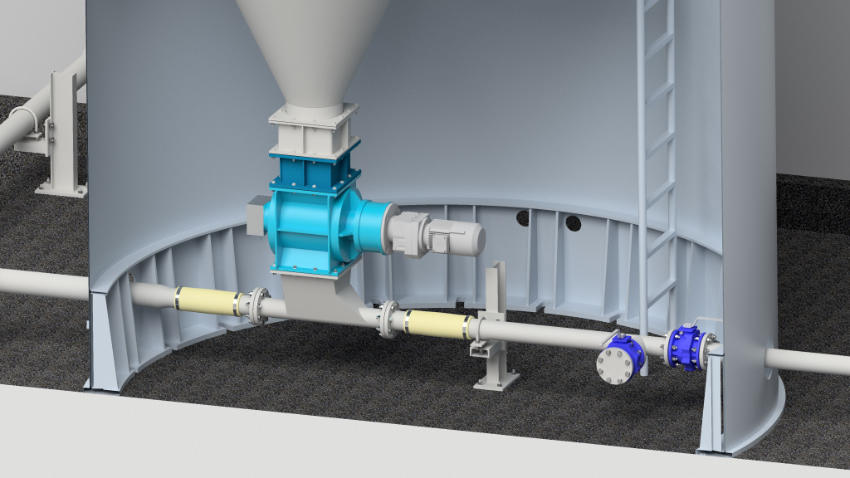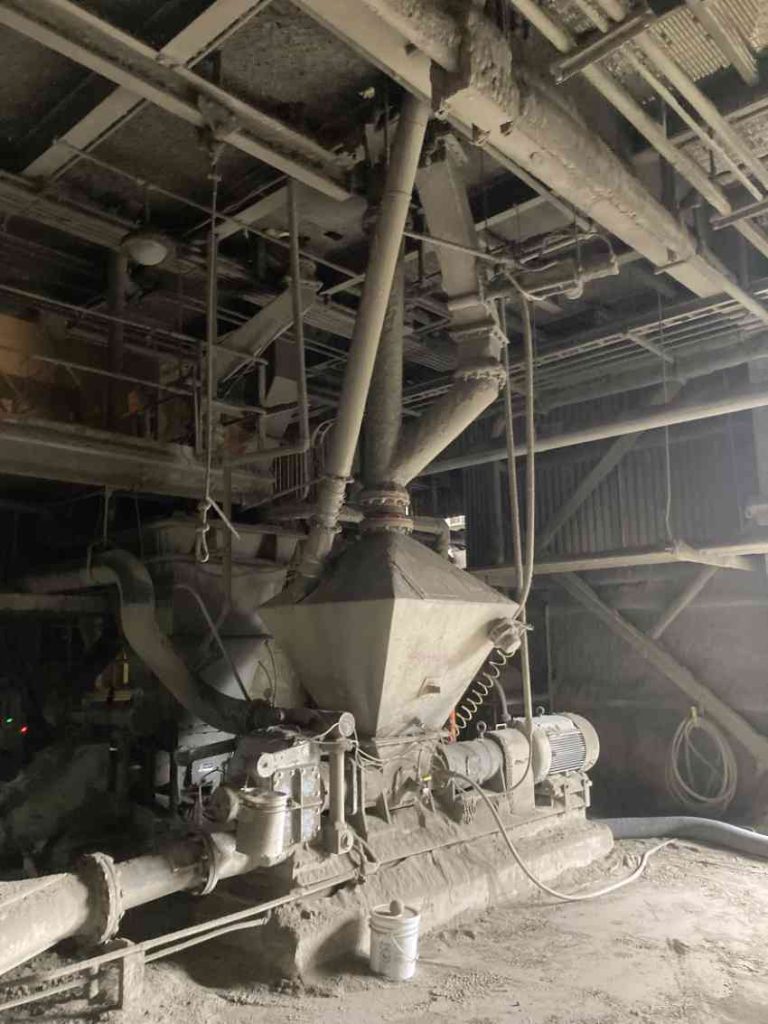Saving energy costs and reduce CO2 emissions with exchange screw pumps in existing pneumatic transport systems. KREISEL already implemented several projects in the last 12 years and helped customers to reduce energy and CO2 and achieve more stable, almost maintenance-free operation. The company can draw on client’s complete plant engineering and component know-how and can support the customer in all aspects of implementation.
Interview with Heiko Groos, Branch Manager Hamburg & Sales Engineer at KREISEL.
Easy Engineering: A brief description of a project / projects.
Heiko Groos: Screw pumps are used in many cement plants around the world and can be replaced in the most cases with a KREISEL rotary feeder plug and play.
Screw pumps require a lot of energy to build with a high rotation speed a plug with the bulk material to seal the two different pressure areas, the intake of the material and the conveying line. The rotary feeders do not need bulk material for sealing and, due to significantly lower speeds, we do not need a such a big motor drive.
Sealing is achieved by a very small gap between the housing and the cell wheel.
We have a wide range of wear protection variants for every kind of bulk material.
Our new development in the field of wear protection, Ultra-Carbide® wear protection, is currently in great demand. This enables KREISEL to feed even very abrasive bulk materials into the pneumatic conveying system. Back pressures of up to 1.5 bar [g] and material temperatures of up to 200°C are no problem.

E.E: What were the needs of the client?
H.G: Our customers have very often trouble with their existing equipment.
Over the time, bulk materials properties may change, and the parameters of the intake systems are no longer suitable for handling them without major difficulties. In addition, our customer wants to increase the performance and modified piping routes for example. For this they need expert support.
Energy savings and the associated CO2 reduction are of course also always an issue. By replacing these systems, our customers save a lot of energy costs and usually recoup the investment costs in less than a year (ROI).
E.E: Why did the client choose your products / solutions?
H.G: Since 2012 KREISEL made plant engineering with our branch office in Hamburg. During the time we build plants around the world with our high wear resistant rotary feeders. Our reference list got longer and longer during the years. The market knows the company KREISEL and their high-quality products. We work together with our customers and partners on site and visit our customers regularly and advise them with our experience in bulk material handling.
Therefore, we enjoy a good relationship of trust with our customers and partners.

Additional is that our products are on point for the requests. We have different kind of wear protection, so that we can offer our customers exactly what they need. With our own manufacturing hall and our branch office we build and plan many of the necessary components by our own. In the last years we build complete bulk materials systems with silos, pneumatic transport, weighing, dosing, complete steel structures and so one. The customer gets with KREISEL one complete partner for his projects.
E.E: What products / solutions were used?
H.G: With our own product folio we can use tailored to the market, manufactured and constructed inhouse, products.
In pneumatic conveying systems, a finely, sometimes sticky, powdered bulk material is often transported, which very often has abrasive properties. A conveying station, which usually consists of a feed hopper, leakage air collector, high wear-resistant rotary feeder, for sticky materials a self-cleaning high wear-resistant rotary feeder and a blow pan, is used here.
This makes it possible to feed a bulk material into a pressurized conveying line and transport it with a carrier gas (usually compressed ambient air).
In addition, KREISEL offers almost all the components required for such systems with our own products. These include filters, gate valves, double pendulum flaps, conveying line diverts, dome valves, flow control gates and much more.

E.E: Please describe how was the project implemented?
H.G: Together with our experts we advise our customers what is the best solution for their request and in this early phase we show with amortization calculation when the return of investment. Our reference during the last years will helps us a lot. When the project is in our house our complete project team with many engineers (process engineer, mechanical engineer, plant engineer, electrical engineer…) from different departments will work for this project. During this stage a close exchange with customers, suppliers and partners is necessary. With the help of 3D laser scans, arrangement drawings, flow sheets and on-site visits we force a good communication any time. Until the end we work with our commissioning engineers so long until every plant works fine.
E.E: Were there any products with special characteristics used?
H.G: The special property of our products lies in the selected wear protection. This involves, for example, a special coating (Ultra Carbide®) or built-in components (ceramic), which protect components from wear or destruction at critical points. In addition, we use precise manufacturing tolerances to create small gaps between the fixed components such as the housing and the rotating components such as the cellular wheel. This enables us to keep unavoidable losses as low as possible.
E.E: How did your products / solutions improve productivity for the client?
H.G: Thanks to low downtimes and long service lives, we enable more continuous operation when transporting materials. This makes downstream or upstream processes more effective.
Also, the changes in the bulk material during the process, is in the most cases not a big issue.

E.E: How important was the project / projects for the client?
H.G: All industries are increasingly faced with the task of increasing efficiency/production with as little effort as possible and saving costs at the same time. If this is accompanied by an increase in performance with cost savings to remain competitive, the projects are sometimes vital. With our energy comparison already in the sales phase, we can show what is possible to save costs.
Additional we are very often in the main process line. In other words, if our transport technology doesn’t work, the entire plant may come to a standstill.
E.E: What was the client feedback after implementation?
H.G: The feedback is every time nearly the same. Our plant work very well, the customers reduce their energy costs and got a high reliability for your plants. More than 4 years without any troubles, maintenance cost and an easy operation is the feedback in 2019 from one of our customers in Germany. Their system works until today without trouble and reduce over millions of kWh/a and thus more than 5,000 tons of CO2/a.
E.E: How did the solutions provided improve efficiency for the client?
H.G: During the high reliability of our systems, we increase the efficiency of every system. Our pneumatic transport with high wear resistant rotary feeders is not sensitive to material changes like grinding aids or through various natural material sources. We can handle it without set up several parameters in the system. Some other system needs for example the exactly material parameters to seal the different pressure areas.
E.E: What are your forecasts for the second half of 2024?
H.G: We have a lot of customer requests. More than ever before but the time between request and an order will be longer and longer. The covid time and some political situations around the world still have repercussions until today. But we look forward and we have good projects for this year and we are excited which challenge we will get in the future.
KREISEL GmbH & Co. KG
Standort Hamburg, Tempowerkring 6
21079 Hamburg / GERMANY
Phone: +49 40 298278-100
Mobile: +49 160 9149 5203
E-Mail: Heiko.Groos@kreisel.eu
Web: www.kreisel.eu

